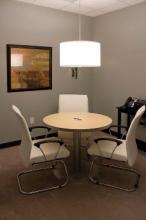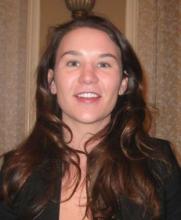LAS VEGAS – Taking time to prescreen men and women who inquire about cosmetic surgery procedures can help maximize their chances of choosing your practice over others, and can help you weed out those who aren’t suitable candidates.
"There is no chance in securing a patient without having a consultation," Tracie Lance, director of finance for Southern Surgical Arts, said at the annual meeting of the American Academy of Cosmetic Surgery. "In order to avoid wasting the patient’s time, the physician’s time, and the staff’s time, we do some prescreening."
The first step, she said, is to find a time on the schedule that is most appropriate for the consultation. If someone inquires about breast augmentation, "you probably want to get them in as quickly as possible, to reduce the chances of their going to another practice," said Ms. Lance, also a patient care coordinator for the practice, which has locations in Chattanooga, Tenn., and Calhoun, Ga. If they inquire about a facelift, there’s less of an urgency to get them in right away, she said, because "they’ve probably thought about it a long time before they picked up the phone to call your office. If you respond, ‘We can get you in this afternoon,’ you may not give the best first impression of your office."
A second component of prescreening is gauging the person’s ability to pay for or finance the procedure. "This is nonnegotiable," Ms. Lance said. "In our experience, we have found that it can be unfair to set unrealistic expectations that all patients will qualify for financing. The frustration can be avoided by having patients apply before they come to the consultation." Consider options such as, "We have someone on staff that can help you with financing. Is that something you’re interested in?" and document the reply for the in-person consultation. "Being able to assist our patient in successful financing is a skill that has set our practice above others," she said.
A third component of the prescreening is asking people to complete a health history questionnaire before the in-person consultation. "There might be something like body mass index that [precludes them from] surgery," she noted.
Consultation appointments are complimentary at Southern Surgical Arts, yet a credit card is required to hold the appointment. "We have a 5% no-show rate, which is pretty low compared to the industry standard," Ms. Lance said.
To maximize the patient experience, physicians should be mindful of the appearance of their waiting room and reception area. "People pay attention to detail, so the office should be clean, with minimal clutter," she said. "In terms of patient flow, after our patients check in we try to get them into an exam room as quickly as possible with an iPad that contains before and after photos and patient testimonials."
After candidate patients at Southern Surgical Arts meet with the cosmetic surgeon in the exam room, they move to a dedicated postconsultation room, where the patient coordinator will review the estimated cost of the procedure and answer questions. Establishing a dedicated postconsultation room "is one of the best things we’ve ever done," Ms. Lance said. She described the room as a "warm environment," equipped with "a round table, MacBook Air, a wireless printer, and a phone."
Patients commonly cite fear, financing, timing, and multiple consultations as objections to cosmetic surgery procedures, Ms. Lance said, noting that financing is the biggest obstacle. "If you have a facelift patient, sometimes it’s easier to offer a no-interest plan, as the bill can be around $16,000," she said. "That’s up to each office, but in my experience, the no-interest plan has been extremely successful. Some patients do not use no-interest financing, but I hear facelift patients tell me all the time, ‘Oh my husband will love this,’ because they don’t feel like they’re taking all this money out of savings at once. Payments of $1,100 or $1,200 per month seem easier."
In her experience, patients considering cosmetic surgery for the first time "are nervous and they tell you they’re going to multiple consultations," Ms. Lance added. "I’m not sure that’s always the case. I think that they’re just nervous. It helps to say, ‘we understand that you’re nervous. If you get home and you have questions, don’t hesitate to call us.’ Sometimes it helps for them to hear about another patient’s experience with surgery. We have patients who will do that for us, which is wonderful."



